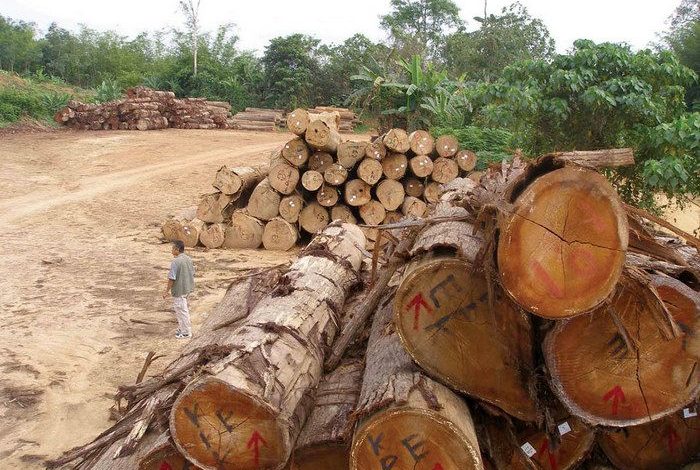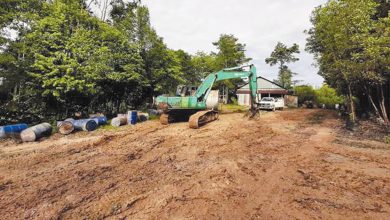Will we now respect the environment?


By Mariam Mokhtar


By the night of Saturday, December 27, 2014, the number of people who had been evacuated to flood relief centres totalled 6,914. By dawn of Sunday, December 28, 2014, the National Security Council said that around 1,968 families had been placed into 56 shelters and the total had reached 7,513 people. By the early morning of Monday, December 29, 2014, when the floodwaters had subsided, the number of displaced people had fallen to 5,728 people.
A number of factors contribute to the devastation caused by the flood waters but man’s activities have precipitated the damage. We destroyed our environment, in the pursuit of profit. We log our jungles indiscriminately and the people who are supposed to monitor and enforce the timber quotas are the ones who are alleged to be in the pay of timber merchants.
The canopy of trees in the jungle, acts like a huge umbrella, during heavy rain. The leaves and roots of the trees absorb much of this moisture. The rotting vegetation on the jungle floor also absorbs some of the water run-off.
The vast variety of tropical jungle trees are cut and replaced with a monoculture, such as planting hundreds of thousands of acres of oil palm trees. The oil palm does not act like a sponge, as the jungle trees would. There is no canopy, unlike the jungle trees and the space between each palm tree is large. Rain falls directly onto the soil, and the rivers cannot cope with the excessive amount of water from the surface run-off.
Civil servants also allege, that when they are asked to appraise a development project, they may turn it down, because it is unsuitable, perhaps, because it involves building on known flood plains or on hillsides. Then, the cronies, who have powerful friends in government, apply pressure, from the top, to gain approval for the project. Thus we have building on slopes, or wet plains, or construction which involves the destruction of mangrove swamps.
Do these irresponsible people, who urge uncontrolled development, realise that the mangrove swamps act as a buffer against rising waters and high winds? Do people who denude the forest and destroy hill slopes realise that without roots to hold the soil together, the unrestrained flow of water down the hillsides causes mudslides which result in the destruction of life and vegetation?
The complaints of villagers, who live near the riverbanks and tidal estuaries, about legal and illegal development, have fallen on deaf ears. Some politicians with close links to businessmen, are directly responsible for the destruction of the environment. Are they around to help the flood victims? Do we dredge our rivers, to prevent silting which creates bottlenecks at certain points along the river?
Look at Ipoh. Certain parts of town are heavily built-up but developers forget to increase the size of drains thus preventing the rain-water from flowing to the rivers fast enough. House-owners also have a tendency to pave their gardens, thus preventing rainwater from being absorbed into the soil.
The authorities are quick to blame the flooding on “climate change”, but they neglect their duty to clear the drains, and prevent blockages by clearing the vegetation which grows in and around the drains. They are equally lackadaisical about clearing branches, dead animals and rubbish from culverts and monsoon drains.
How good are our flood warning systems? Our communities are affected and our farmers’ livelihoods are destroyed, when farmland is under water. Our houses smell of mud and slime after the waters have receded. Will we do more to respect the environment, or are we resigned to be punished, whenever it rains heavily?


